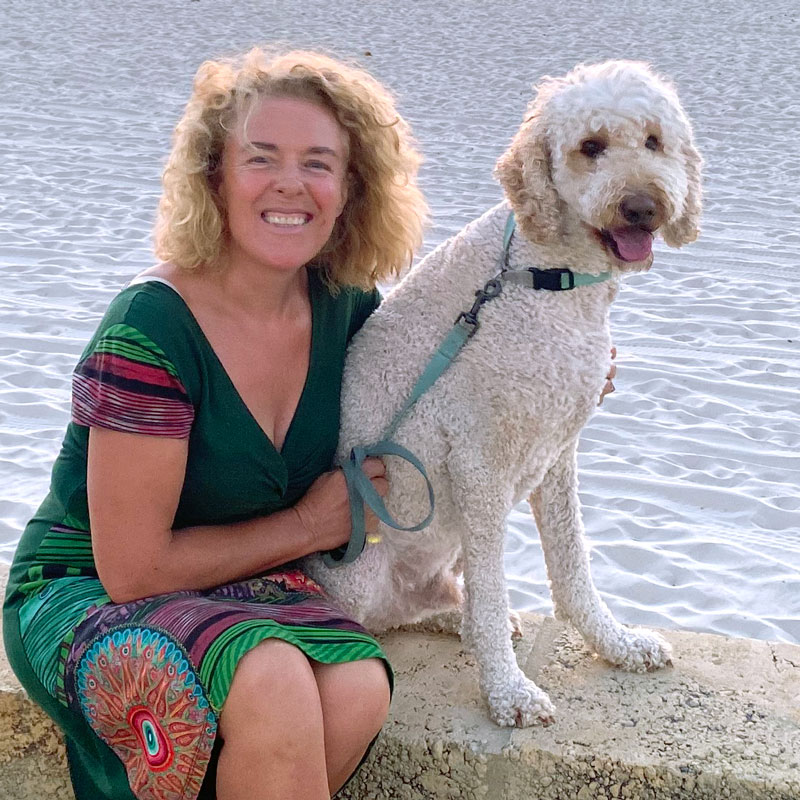Light over darkness
This staying at home malarkey has come relatively easy to me because I have been a full-time ‘stay-at-home’ Mum for 15 years now. During this time, I’ve lost contact with some of the people I once called good friends. There are a couple of reasons for this; I’ve moved to a different country and I am no longer in the workforce doing the job that bound me to those people. As you will have read in last week’s blog, I have been indulging in a period of navel-gazing as part of my healing. And then out of the blue, as though Facebook could read my mind, I found myself responding to suggestions offered by the machine.
Living in auto-pilot mode
One of the friends I reconnected with after all these years shared her joy at finally being able to tackle her penchant for luxury goods that had been costing her a small fortune. She found that when she had removed the stress of the long commute in and out of London to meet the demands of her busy job, she no longer felt the urgency to acquire another pair of expensive shoes. Instead, she posted a gorgeous photo of her relaxing with her kids during her lunchbreak from homeworking, in her pyjamas. I would call this the silver lining of the COVID-19 cloud.
I reckon many of us have been living in auto-pilot mode, following trends, fashion, being influenced (unconsciously) by what others eat, wear, drive or do with their leisure time. I also came across a heart-warming story the other day about a high-flying executive who has taken the chance to re-evaluate her life thanks to being forced to stay at home and has decided to abandon her goal of climbing the company ladder in favour of spending more time in the home she and her husband designed and built and is planning on rescuing a couple of dogs from the pound. There’s that silver lining again.
Time to Reconsider our Priorities
From everything I am reading and hearing, it would seem that we are collectively pausing and reconsidering what matters to us most now. We realise the fragility of human life and how we are lucky to be alive. Even though we are all experiencing the distress of trauma and struggle to some degree because of this pandemic, we are also finding ourselves in a place of change and growth. Have you made any social resolutions? I know that I have, especially in terms of how I want to spend my time and who I want to spend it with. I am loving the fact that I don’t have to be anywhere with anyone. I find this liberating. All I have to do right now is meet my basic needs and those of my family, free from all other pressures. Any commitments I may have made prior to the virus outbreak are null and void therefore freeing me up to do as little as I like. How fantastic is that!!
The struggle is real
While I am thanking the universe for all that I have during these difficult times, I am aware that it isn’t so easy for many. The coronavirus is a double-edged sword in that it is both a medical emergency and an economic disaster. For millions of people worldwide, life was hard enough as it was before the crisis. I would imagine the situation has become untenable for many who are struggling to come to terms with having lost family members, employment and livelihoods. It is encouraging to see that many governments around the world have introduced measures to stop evictions for non-payment of rent, to pause mortgage and bill collections and to stop utility cut-offs for overdue accounts. It just goes to show you that rules can be changed, and with remarkable speed too if the political will and priority are matched. I see this as yet another silver lining where perhaps the most vulnerable in society, those trapped in poverty and debt, can begin to be better supported in the long term.
Squandering squillions
I’ve written about one of my bugbears before, the squandering of funds on things that in my view make no sense when it comes to the advancement of mankind. Just to remind you, the richest one per cent own 44% of the world’s wealth. Some of this wealth comes from the manufacture of submarines, warships, fighter jets, missiles, transport aircraft and all the land-based equipment that go with them. The global spend on military capability is $1.8 trillion, with the US accounting for one third of this. According to Jeffrey Sachs, one of the world’s leading experts on economic development, it would cost $175 billion per year to end world poverty. But no, we can’t do that. You see we are so dumb that we are likely to kill each other if we don’t have enough weapons to show the other who’s boss. South Korea, with a population of 50 million people, spends almost $50 billion protecting itself against North Korea. How insane are we humans?
Finding balance
You might argue that we need to militarise in order to survive but I question why there needs to be so much hate and fury in the first place. Could it just be possible that because we are all so deeply connected as human beings, no matter how wealthy and powerful some of us become, we will never be happy until there is equality in the world? According to a recent UN report, people are pledging financial support for others even though they are themselves struggling. It would appear that yet another silver lining of the pandemic is the shared realisation that we are all in this together. Even as we remain focused on our own well-being and that of our families, friends and neighbours, we still care deeply about what’s happening elsewhere as we’ve come to understand that this virus does not discriminate and does not respect borders.
Hope for the future
When we all emerge from this crisis, my hope is that we are wiser and more appreciative of how we can all make a difference together. We need to challenge the vested interests of corporations and the corrupt influence of money in politics. We can do this by voting for a government that puts people first. If you haven’t watched the movie ‘2040’, I strongly recommend that you do as it will get you thinking about the things that we can each do to make this planet more sustainable for future generations. I know I’ve gone off on a tangent now, but I mention this movie because it introduced me to the concept of ‘doughnut economics’ which I believe could be the way forward. Kate Raworth explains the ‘doughnut’ economy is based on the premise that ‘Humanity’s 21st century challenge is to meet the needs of all within the means of the planet. In other words, to ensure that no one falls short on life’s essentials (from food and housing to healthcare and a political voice), while ensuring that collectively we do not overshoot our pressure on Earth’s life-supporting systems, on which we fundamentally depend – such as a stable climate, fertile soils, and a protective ozone layer. The Doughnut of social and planetary boundaries is a playfully serious approach to framing that challenge, and it acts as a compass for human progress this century.’ There is much to be hopeful about as long as we have people who allow their hearts and brains to combine to help create a better world for all. This will also stand us in good stead for the next global challenge as they will keep coming in ever increasing frequency and magnitude.
I will leave you with a quote from one of my favourite poets, Walt Whitman, American Poet (1819 – 1892).
The greatest country, the richest country, is not that which has the most capitalists, monopolists, immense grabbings, vast fortunes, with its sad, sad soil of extreme, degrading, damning poverty, but the land in which there are the most homesteads, freeholds – where wealth does not show such contrasts high and low, where all men have enough – a modest living – and no man is made possessor beyond the sane and beautiful necessities.
Thanks for your attention this week. Stay well, stay home and stay tuned.

